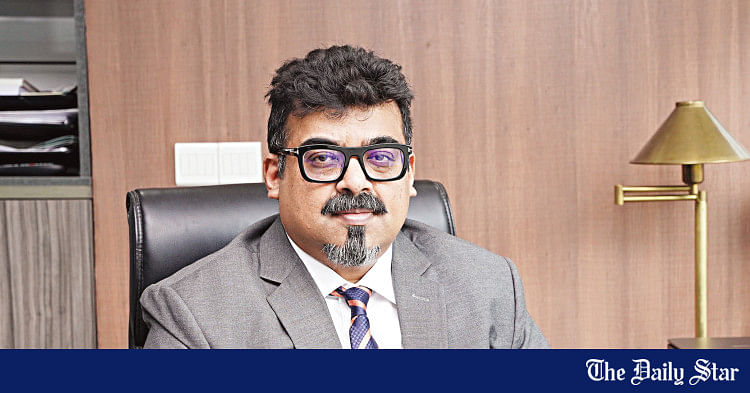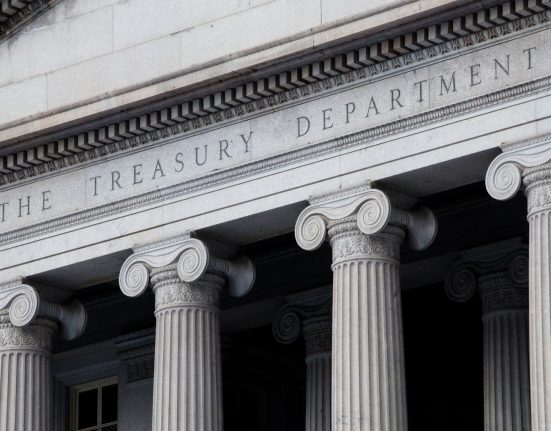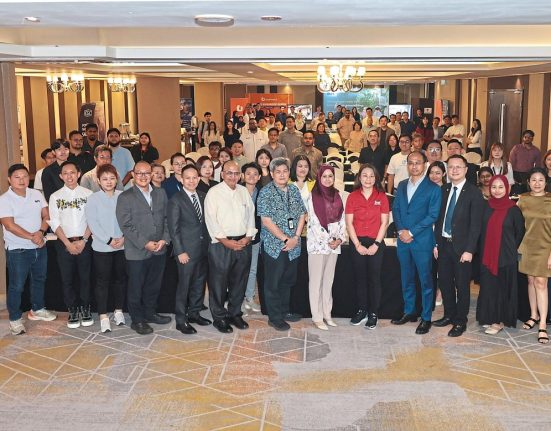M. Nazeem A. Choudhury, Deputy Managing Director, Prime Bank
The Daily Star (TDS): What is the current state and trend of bank deposits in the country?
M. Nazeem A. Choudhury (MNAC): The deposit landscape in Bangladesh is evolving amidst global uncertainties, domestic inflation and changing customer expectations. Despite these challenges, the banking sector remains resilient, with Prime Bank playing a key role in driving deposit growth through innovation and targeted solutions. Customers today demand more than traditional banking- they seek value, ethics and convenience. In response, Prime Bank has enhanced its focus across Corporate, Institutional, Commercial and SME Banking by offering tailored deposit products aligned with business needs and regulatory frameworks. Our academic initiative, PrimeAcademia, is reshaping financial inclusion for the education sector by offering specialised deposit solutions such as digital tuition fee collections, teacher-centric savings and youth accounts promoting financial literacy. Additionally, our Hasanah Islami Banking has gained strong traction by promoting Shariah-compliant deposit options like Halal Savings, ensuring financial services that align with faith-based values while promoting transparency and social welfare.
TDS: What major deposit schemes does your bank currently offer, particularly those tailored to specific customer segments?
MNAC: Prime Bank offers a wide range of tailored deposit schemes to meet the diverse needs of individuals and institutions. For corporates and institutions, we provide advanced cash management solutions through PrimePay for efficient, secure transactions. SMEs benefit from flexible deposit options linked with credit facilities and preferential rates. Priority Banking serves high-net-worth individuals with exclusive services, while salaried professionals enjoy high-return Payroll Savings Schemes. Senior citizens are supported through the Prime 50 & Plus Savings Scheme, offering higher returns and healthcare benefits. Our women-centric platform ‘Neera’ includes exclusive deposit schemes and insurance coverage to promote financial inclusion. Under Hasanah Islami Banking, we offer Shariah-compliant savings, Mudarabah term deposits and profit-sharing accounts. Students and youth are engaged through PrimeAcademia’s zero-fee Youth Accounts, while teachers enjoy preferential interest rates, insurance, and loan facilities. Educational institutions benefit from dedicated accounts for managing payroll and tuition collections. Non-Resident Bangladeshis are served through the NFCD, NRBPL, Home Loan and Prime Porijon Accounts, offering income schemes and remittance-linked savings.
TDS: What innovations has your bank introduced in terms of technology, payments, and security to benefit depositors?
MNAC: Innovation lies at the heart of Prime Bank’s strategy to enhance customer experience, expand access and ensure secure banking. Our omnichannel platform, MyPrime, enables 24/7 deposit access, fund transfers, utility payments. We’ve introduced end-to-end digital account opening through e-KYC, empowering underserved segments- especially students and rural women- to join the formal financial system with ease. Through PrimeAcademia, we offer digital tuition fee collection for schools, while our women-focused platform Neera combines financial education with autonomous savings solutions. We’ve also enabled QR payments, mobile wallet integration and interoperability with RTGS and BEFTN for seamless, real-time transactions.
In partnership with TallyKhata, we are pioneering micro deposit collection for informal workers, helping nano-entrepreneurs transition into formal banking. Security remains a top priority- our systems are equipped with AI-based fraud detection, two-factor authentication and real-time risk scoring to protect depositors.
TDS: What are your bank’s future plans for developing new deposit schemes and enhancing operational modes for depositors?
MNAC: Prime Bank’s future deposit strategy centers on inclusion, personalisation and digital innovation to meet the evolving needs of customers. We are set to introduce savings planners, offering personalised insights based on customers’ income, goals and behavior. PrimeAcademia will be enhanced with flexible instalments, digitised student loans and pension-linked deposit options for educators. Our women-focused platform Neera will expand to include maternity-linked savings schemes and financial training for rural women entrepreneurs, promoting empowerment and resilience. For sustainability-conscious savers, we plan to launch Green Deposit Products, while Hasanah Islami Banking will grow to feature youth-oriented halal savings and zakat-linked community deposits.
To improve accessibility, we’re rolling out voice-assisted banking and biometric authentication, particularly benefiting elderly and visually impaired customers. We aim to deepen our SME deposit ecosystem by integrating accounting tools, invoicing and digital payment solutions. Through Agent Banking, we’ll further penetrate underserved regions, connecting unbanked communities to formal financial services.
TDS: What role do you believe the government should play in strengthening public trust and ensuring the safety of deposits in the banking sector?
MNAC: A resilient and inclusive banking sector relies heavily on public trust and the government plays a vital role in reinforcing that trust. Strengthening the Deposit Insurance Scheme, particularly to protect small savers, is key to ensuring deposit safety and financial stability. Transparent disclosures of bank performance and governance should be mandated, enabling customers to make informed banking decisions with confidence. The government can further promote financial literacy across schools, rural communities and women-focused groups- initiatives that align well with platforms like PrimeAcademia and Neera, which already champion financial education and empowerment. Encouraging strong compliance frameworks, ethical governance and Shariah-compliant banking practices will foster a more competitive and values-driven industry.


 For all latest news, follow The Daily Star’s Google News channel.
For all latest news, follow The Daily Star’s Google News channel. 




